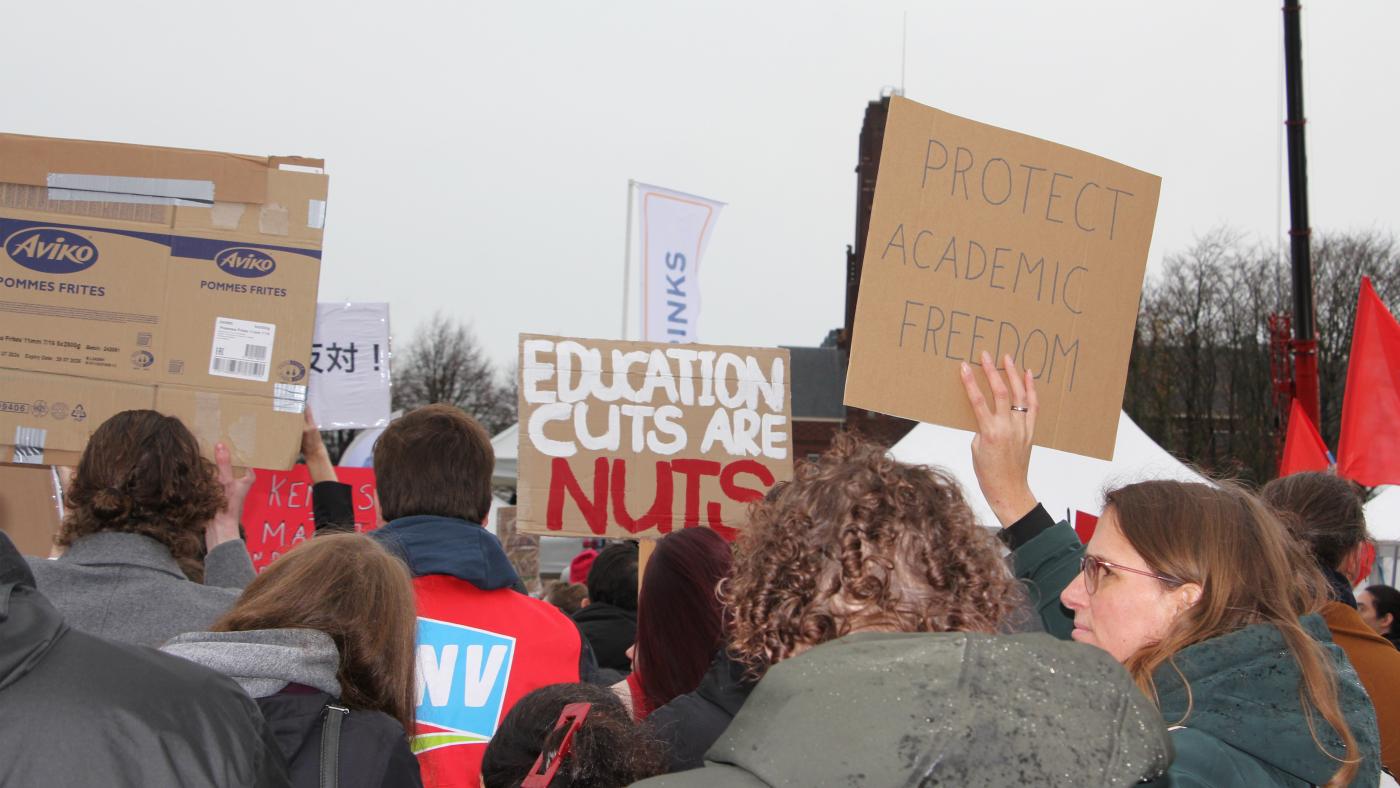Education budget deal
Opposition split, coalition relieved

Most opposition parties are deeply disappointed by the deal. Yesterday, they discussed the amended national budget in the Parliament, after the parties JA21, CDA, ChristenUnie and SGP struck a deal with the coalition on Wednesday night. The rest of the opposition wondered why the four parties were keeping the cabinet in the office. "We could have said to this cabinet: your trial period is over, you have failed," said Esther Ouwehand, from Partij van de Dieren.
Less bad
CDA MP Maurice Krul responded by saying that his party wants to avoid the "chaos" of a voted-down budget. If the Senate doesn't approve the budget, then the previous budget remains in place. In his party's view, the education budget will be "less bad" as a result of his party's efforts in the alliance. The budget cuts to social service hours will be reversed, for instance.
Thanks to the deal, the coalition parties have also washed their hands of the most controversial measures, such as the fine for late graduates, the reduction of the influx of international students, and the VAT increase on books. "We've done all this at the request of the opposition. I would say: count your blessings."
Region
The austerity measures related to the influx of international students will be toned down from a structural 293 million to 168 million euros. This also suits the coalition, as parties within it have been calling for a relaxation of the measure in shrinking regions. According to coalition party BBB, the cutbacks on internationals are "off the table" in Friesland, Groningen, Drenthe, Zeeland, Twente and Limburg.
The Minister of Education, Eppo Bruins, did not dare to say it firmly just yet. First, he wants to let the Parliament know how he will accommodate these regions in his law, which should happen in January. Jan Paternotte (D66) is concerned that four universities in the Randstad region (the biggest urban conurbation in the Netherlands, Ed.) will soon have to absorb the entirety of the cutbacks.
Painful
Most of the criticism was directed at the four coalition parties and the opposition parties helping them push the austerity measures over the threshold, but Minister Bruins' actions were also under fire. "It is painful to see that the minister has basically been sidelined as a spectator to his own budget," Paternotte said.
Joost Eerdmans (JA21) also found the course of events strange. "I did not talk to the minister a single time before last week," he argued. Bruins waved it away, saying he appreciated that "things seem to be clearer now for pupils, students, teachers, lecturers and academics."
MP Jimmy Dijk (SP) wonders if Bruins feels that he has things under control somewhat. "I think my feeling is irrelevant. It's about the results," retorted the minister.
Result
And the result is that the budget will pass in the Senate, with most of the cuts in research and higher education going ahead. The government initially wanted to reduce the education budget by 2 billion euros, and now a 1.25 billion reduction remains. Scientific research is the biggest loser in the deal, according to the Association of Dutch Universities, UNL.